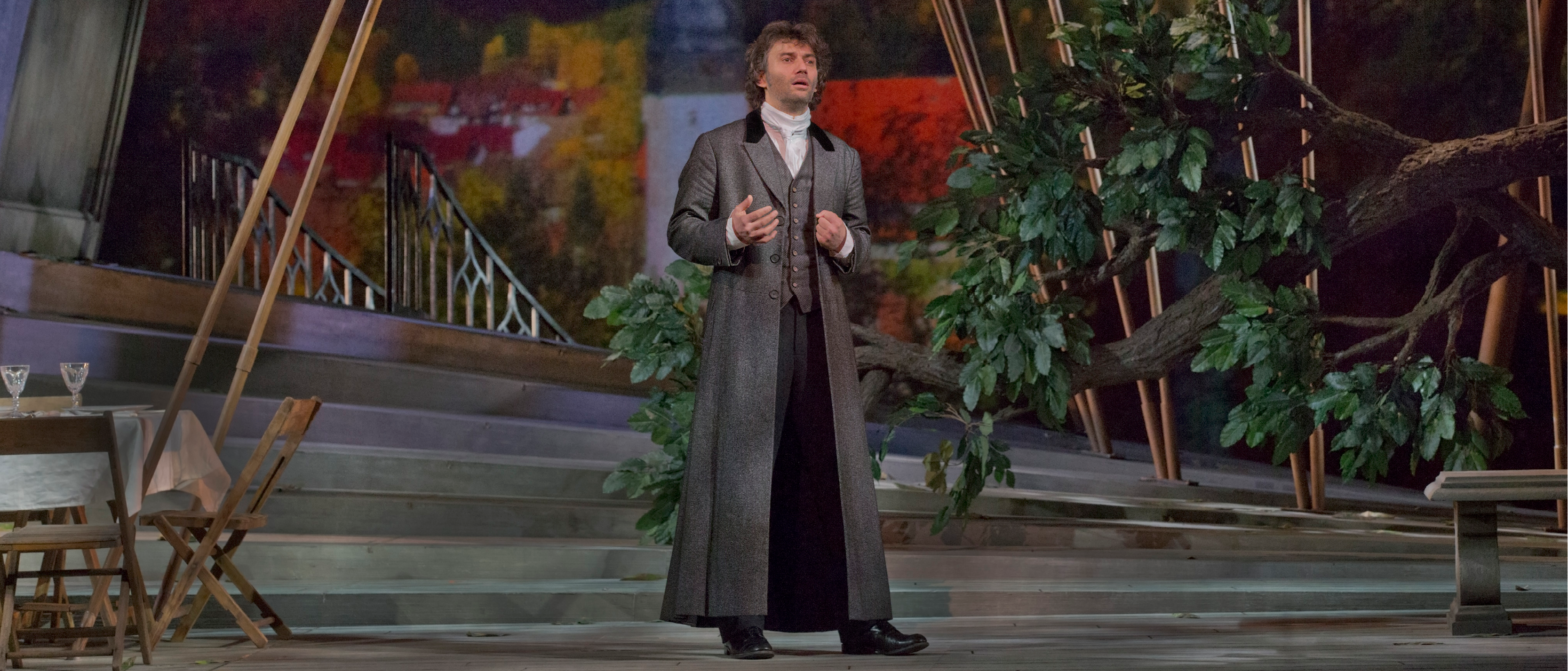
Philosophical Chairs
Philosophical Chairs is an activity designed to foster critical thinking, active inquiry, and respectful dialogue among students. To play a game of Philosophical Chairs, participants agree or disagree with a series of statements, but the game doesn’t end there. The most crucial element of the game is what happens next: Participants discuss their points of view and can switch sides if their opinions change during the discussion. (For more tips on using Philosophical Chairs in a classroom or via a remote-learning platform, see the activity description in your Google Classroom.)
Each topic statement is deliberately open-ended yet ties into a number of the themes present in Werther—including the power of love, the beauty of nature, and the impact of grief and loss. As you and your students explore and learn about Werther, you can return to these statements: What do they have to do with the opera’s story? How might these questions help us explore the opera’s story, history, and themes?
Note: With the nature of many of the topics in Werther, additional suggestions have been provided on how to guide your class’s discussion. Allow ample time for students to process the subject matter that is discussed in this activity and all other lessons for the Werther unit. Create a safe space from the start, and acknowledge confidentiality among those gathered (while acknowledging that confidentiality will and should be broken when someone’s life is in danger). Encourage students to ask questions, share their experiences, and freely share their thoughts and emotions. The conversations you have with students in this unit may very well save a life.
The Statements
- Grief is like the ocean.
- The opera begins with the death of a loved one. Ask students how they would describe what grief is. Remind them that we may grieve more than just the physical loss of someone. Ask students what else someone might grieve over.
- Grief is good.
- Ask students what “good grief” might be. Is grieving healthy? Is it okay to show our emotions?
- Letter writing is an ancient art, not meant for a modern society.
- Ask students about the last time they wrote a letter to someone. How is writing a letter different from sending an email?
- Everyone has an innate desire to love and be loved.
- Nature inspires me.
- If students agree, ask them which places inspire them and brings them joy.
- I am a romantic.
- Ask students what they think a romantic is. What are the things have they seen or heard that may have impacted their definition and response to the statement?
- Love that burns with the brightest flame is often a love that is fated to fail.
- The mind can control the heart.
- You can never love someone (or something) too much.
- Have a conversation with students about what fixation is, and if loving someone (or something) can become an unhealthy obsession that might cause harm.
- Nothing in life is unmanageable.
- Ask students: Is everything that is handed to us on our life’s journey manageable? Or are some things simply unmanageable? Discuss various coping strategies (including those listed elsewhere in this guide) to help students better overcome situations they might feel are unmanageable.
- Suicide is steeped in stigma.
- Ask students what the statement means, and provide clarity if needed—particularly for the word “stigma.”
- I am optimistic about the future.
- If students disagree, ask them why. Discuss with students the difference between optimism, realism, and pessimism, and relate it back to Werther.
- It’s okay not to be okay.
- I know whom to reach out to if I, my friend, my family member, or even a complete stranger is suicidal.
- See the tips in the guide for who to contact, and how to act in a suicidal situation.
Keep in mind that the process of this activity is just as important as the statements themselves. Imagine a world in which everyone actively listens to one another and engages in respectful dialogue, honoring others and showing respect for the wide array of diverse ideas and opinions that others hold. Philosophical Chairs fosters exactly this kind of space, encouraging students to take what they’ve learned and change the global landscape for generations to come.